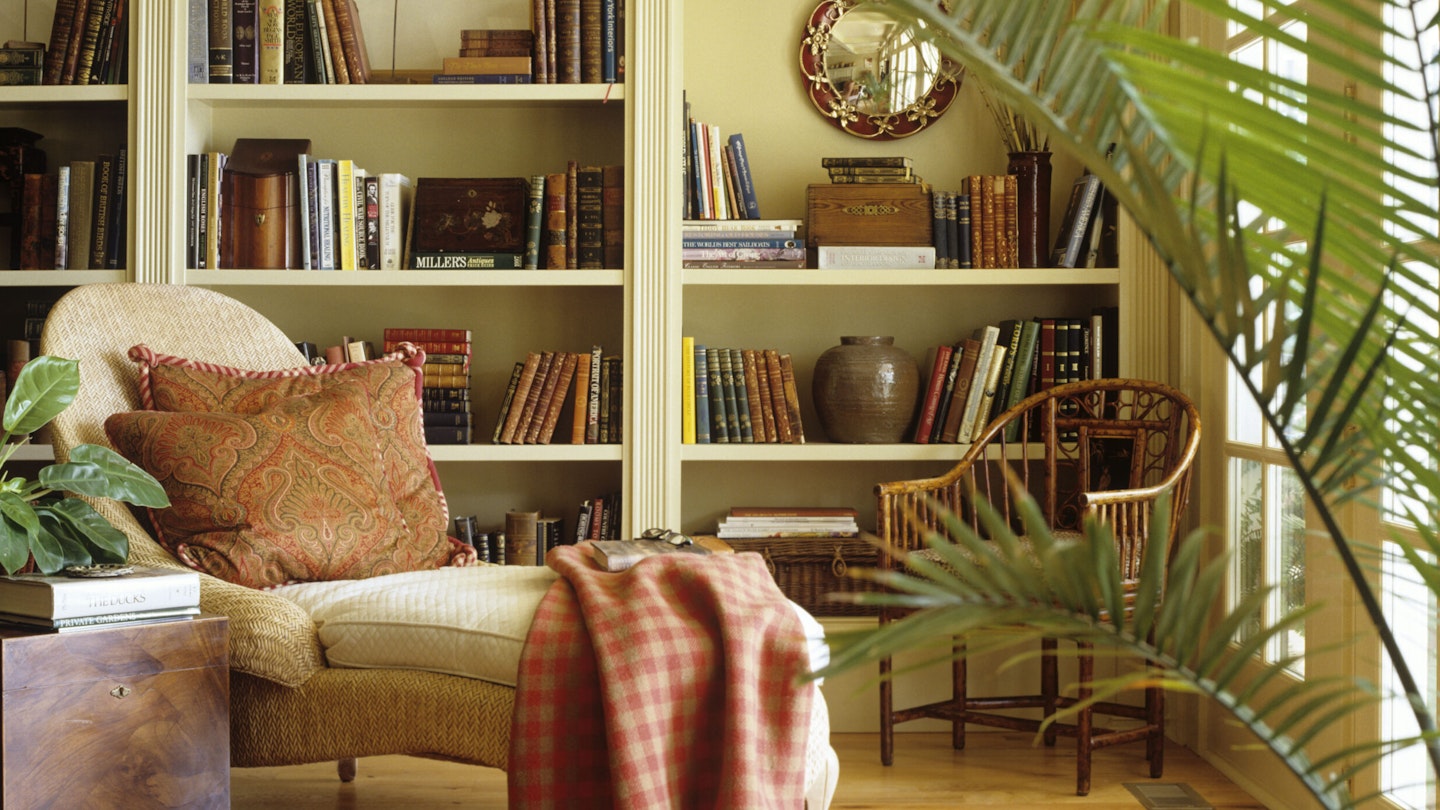There is something undeniably cosy about a small living room - especially when, for most of us, having a big house is a pipe dream. The reality is that more of us than ever are living in modest sized spaces (keep buying those lottery tickets in the meantime). In 2021, 21.7% (5.4 million) of UK households were in a flat, maisonette or apartment, up from 21.0% (4.9 million) in 2011, according to the Office for National Statistics.
But being short on space doesn't mean you have to sacrifice style. When the area is utilised cleverly, small living rooms can easily become the heart of the home, due to their ambient and warm feel. From savvy storage to mirror tricks and clever furniture, there are countless interior hacks to transform your home from cramped to cute and cosy.
With that in mind, we've asked interior experts for their top tips on maximising small living spaces.
Here's the best small living room ideas for your home...
Keep walls light
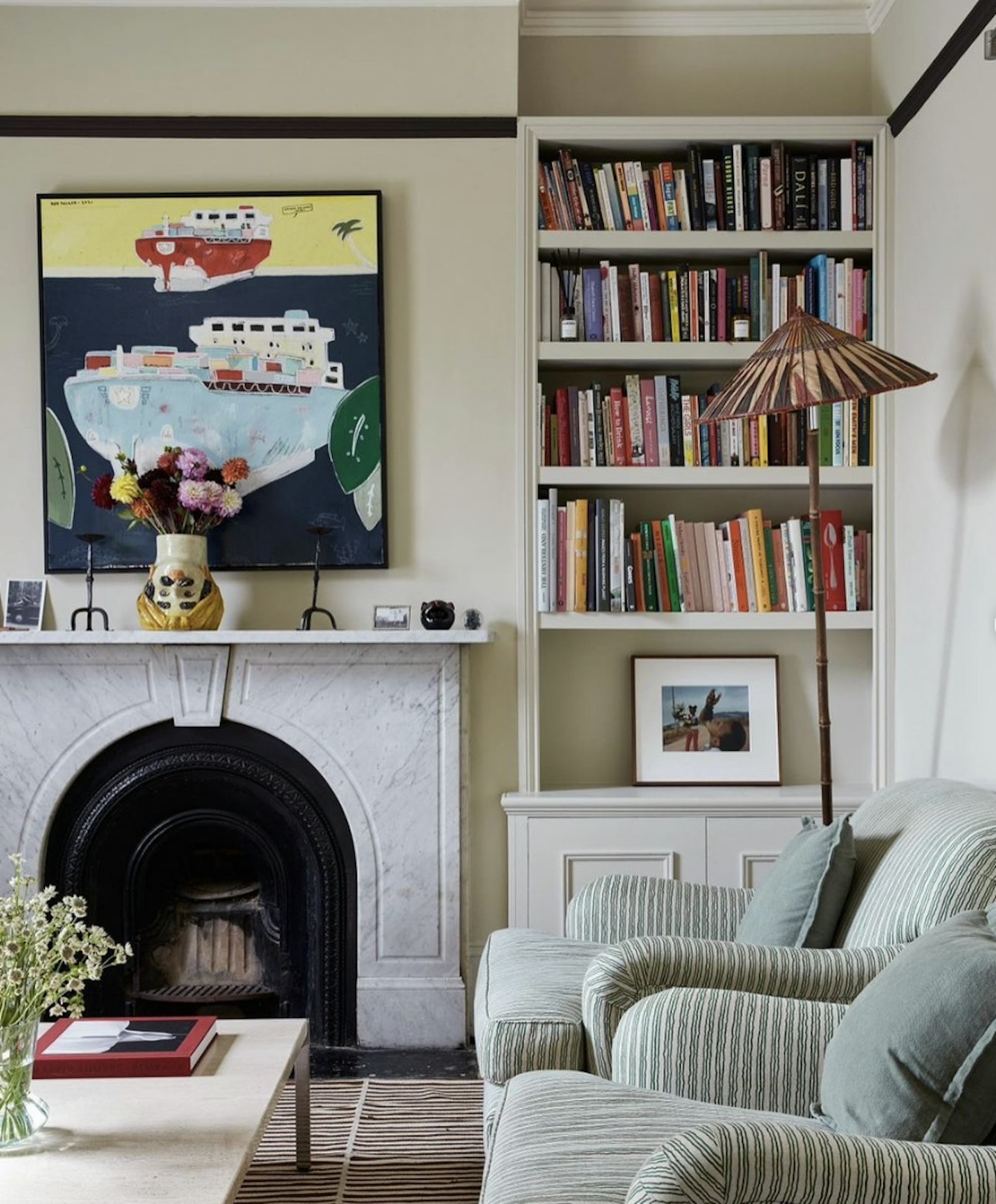
A lot of the time, small living rooms are multi-functional spaces, that double up as places to eat, drink and socialise. Kelly Collins, interior designer at Swyft Home, explains that choosing lighter coloured walls can help make a small space look bigger. 'If you choose darker colours, it's going to bring the space in - so light walls is definitely the first place to start,' she says. If you're not a fan of stark white walls, she suggests choosing colours like off-white, taupe and stone, which are all going to reflect light in the same way while giving a 'warmer feel.'
Take inspiration from Laura Jackson, whose Forest Gate home (pictured above via Instagram) is painted in a muted colour palette, to create a calming, serene environment.
Choose furniture with legs
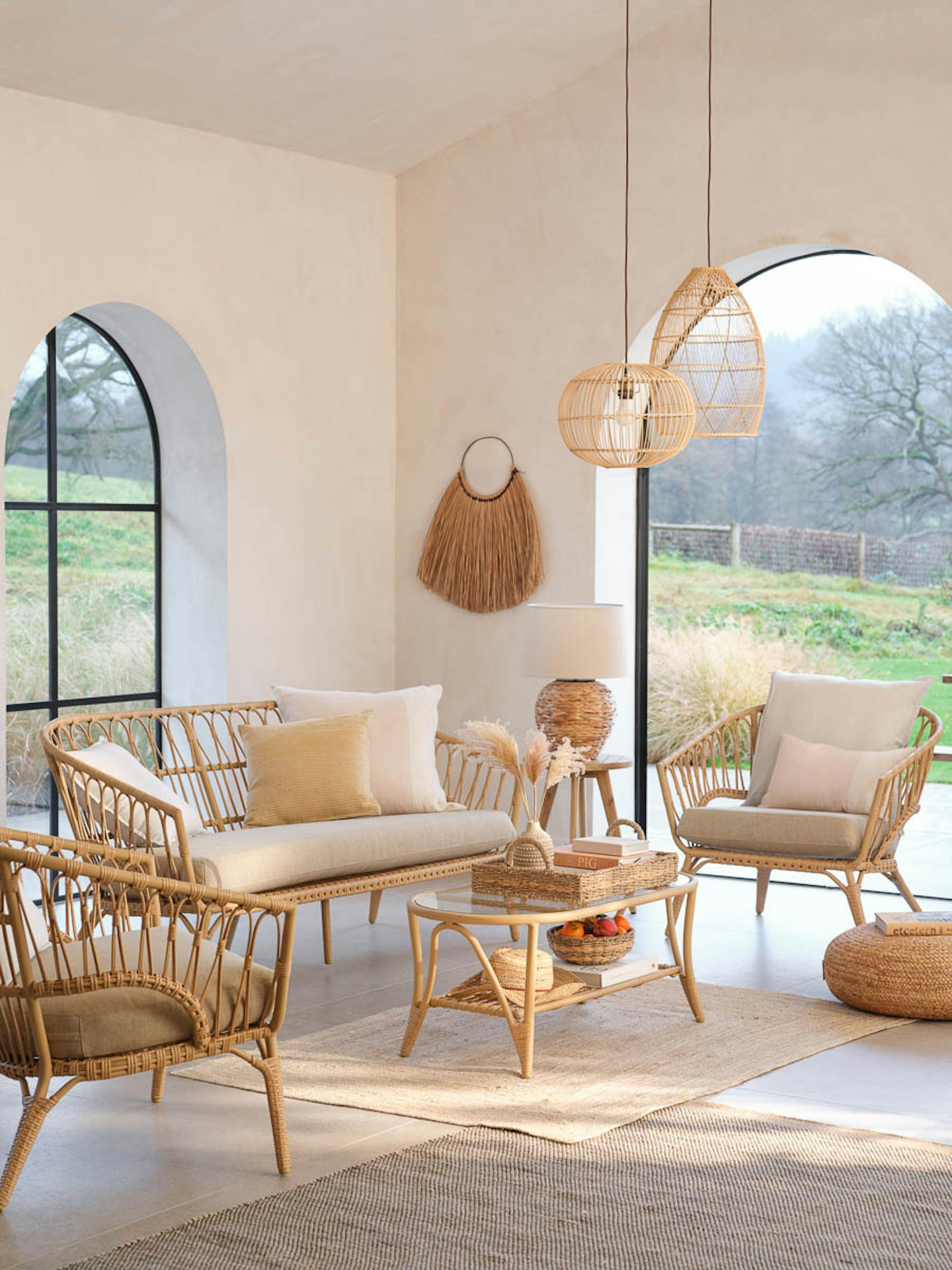
It's no secret that floor space is limited when it comes to small living rooms. Whether you choose to decorate with furry rugs, carpet or minimalist tiles, more is more when it comes to using your floor to maximise your space.
'The more you see the floor, the bigger the space is going to feel. Have your sofa on legs instead of doing a base to the floor, or have a glass coffee table so you're going to see more floor,' says Collins.
Add a large mirror
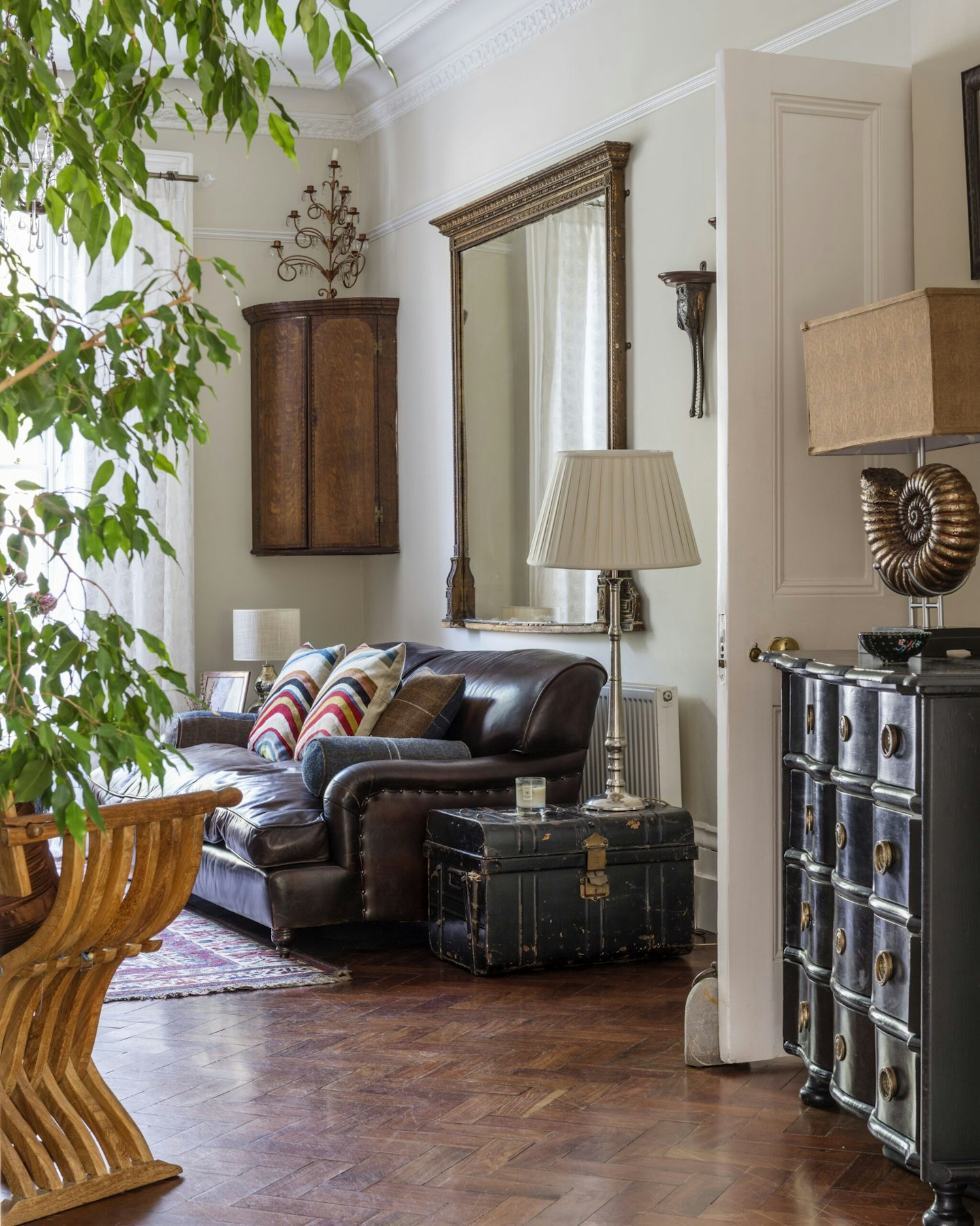
It's a well known trick that adding mirrors reflect the light in a room, making your small living space feel bigger and brighter.
'Mirrors are brilliant to use to create an illusion of depth and more space – you’ll also brighten a dark corner if you have a lack of windows or natural light. Arched or dome shaped mirrors placed strategically alongside or opposite your lighting can almost double as a window alternative if you are looking to maximise light and a feeling of spaces,' says Caitlin Sharp, trade manager atSofas & Stuff.
But they aren't just for reflections. In 2024, mirrors double up as artworks - just take the success of the Ultrafragola mirror by the Italian architect Ettore Sottsass, which has been spotted in the homes of countless influencers, from Bella Hadid to Nina Sandbech. Look to funky shapes, asymmetrical angles and unusual textures to make a statement.
Mix up the heights
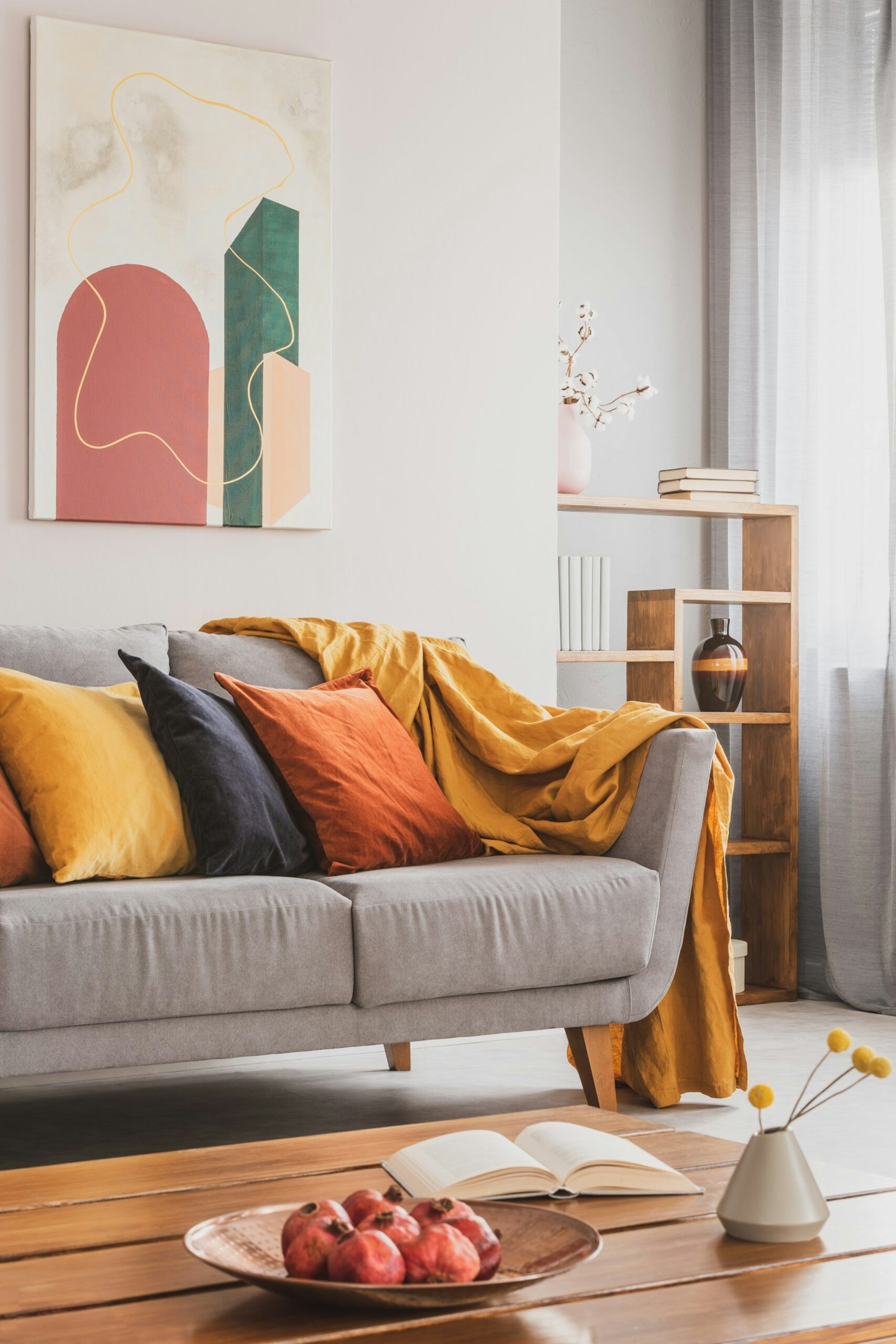
Lots of people forget how important height is when it comes to interiors, but it can be the key to maximising a a small living space.
'With a smaller room you want to draw your eye up. In a smaller room, a gallery wall will make the space feel too busy. But having a really beautiful large, high piece of artwork, will draw your eye up and make the space feel bigger,' says Collins. You could try hanging plants on the wall, putting shelves higher up or using lighting to switch up the height.
Use multi-functional furniture
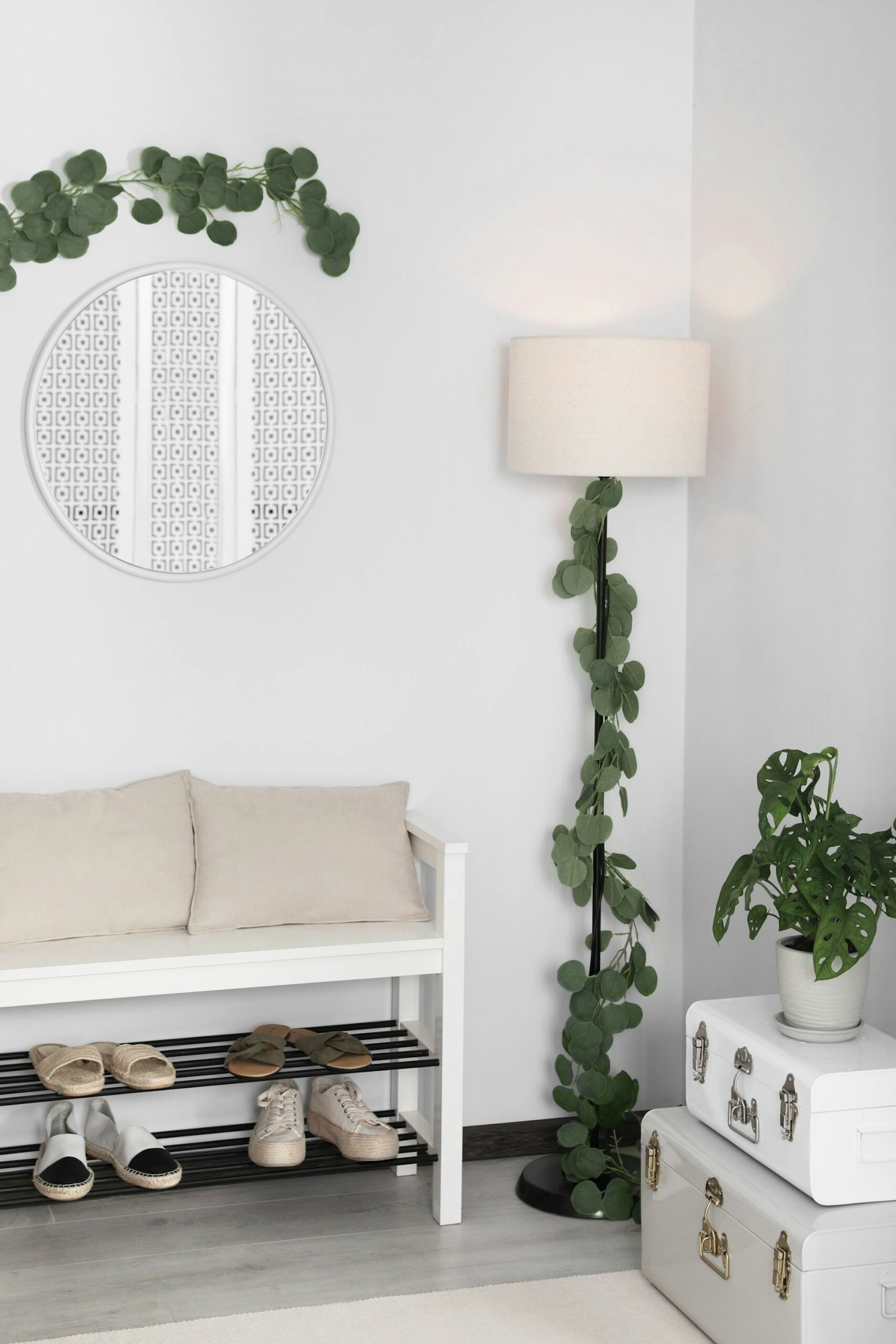
'The less clutter in the room, the more clear, calm and less busy a small room will look,' says Collins. 'A good example is an ottoman that doubles up as a seat, but you can store magazines and blankets in it.'
Limit open storage
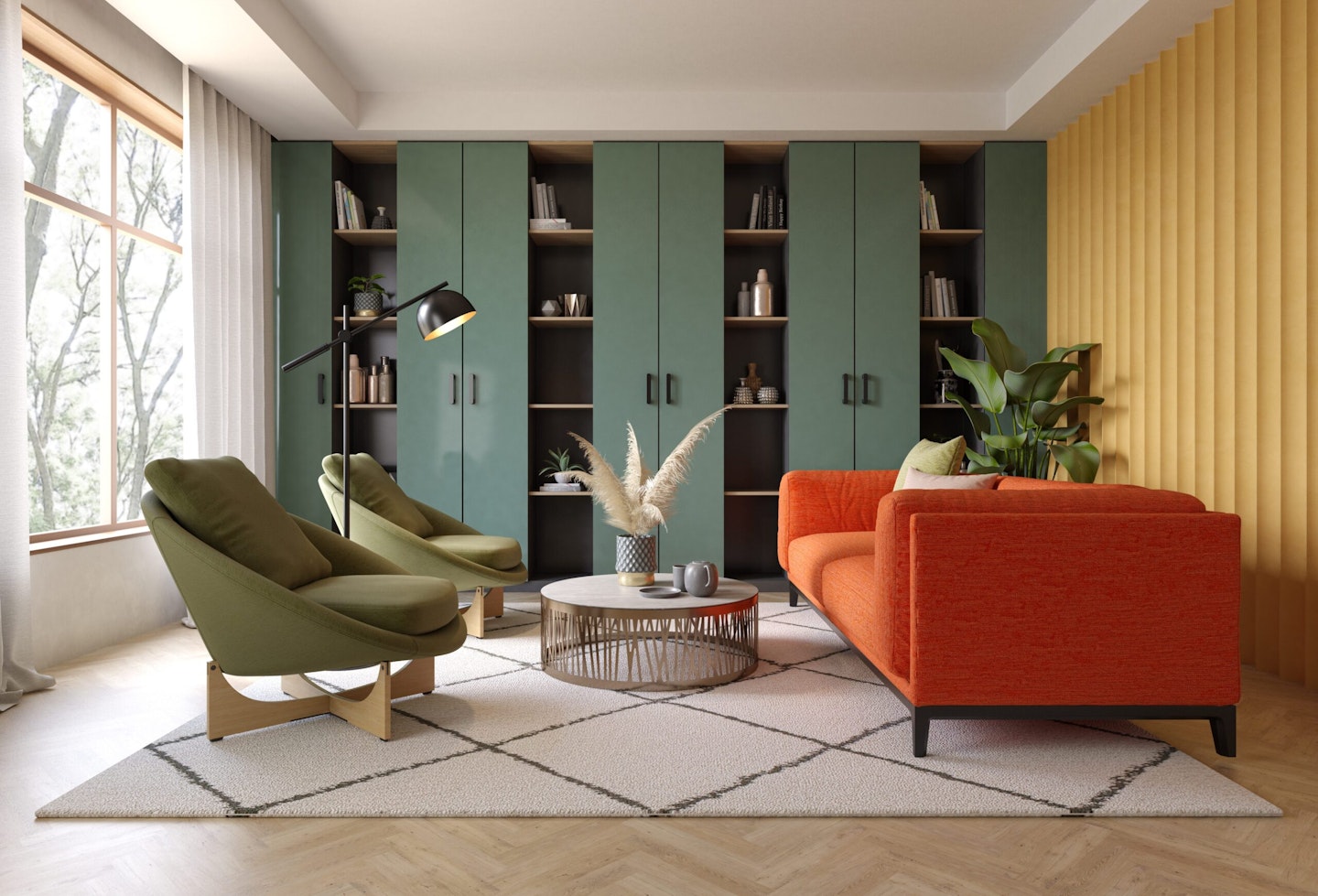
Clutter is an inevitable part of living in a small space. Those with children or big families will be especially familiar with the constant influx of stuff that accumulates seemingly out of nowhere. But that's not to say we have to go full Marie Kondo on our interiors, but a bit of savvy storage goes a long way when it comes to small living rooms.
'I have a dog and a child, and I know I have to have closed off storage in my living room, because there's stuff I need to hide away,' says Collins. 'Some people can style it perfectly and it will stay like that, but for a lot of us it will just get cluttered and messy. It's fine to have a mix of open and closed, but just make sure there's somewhere to store all the clutter.'
Avoid floor lamps
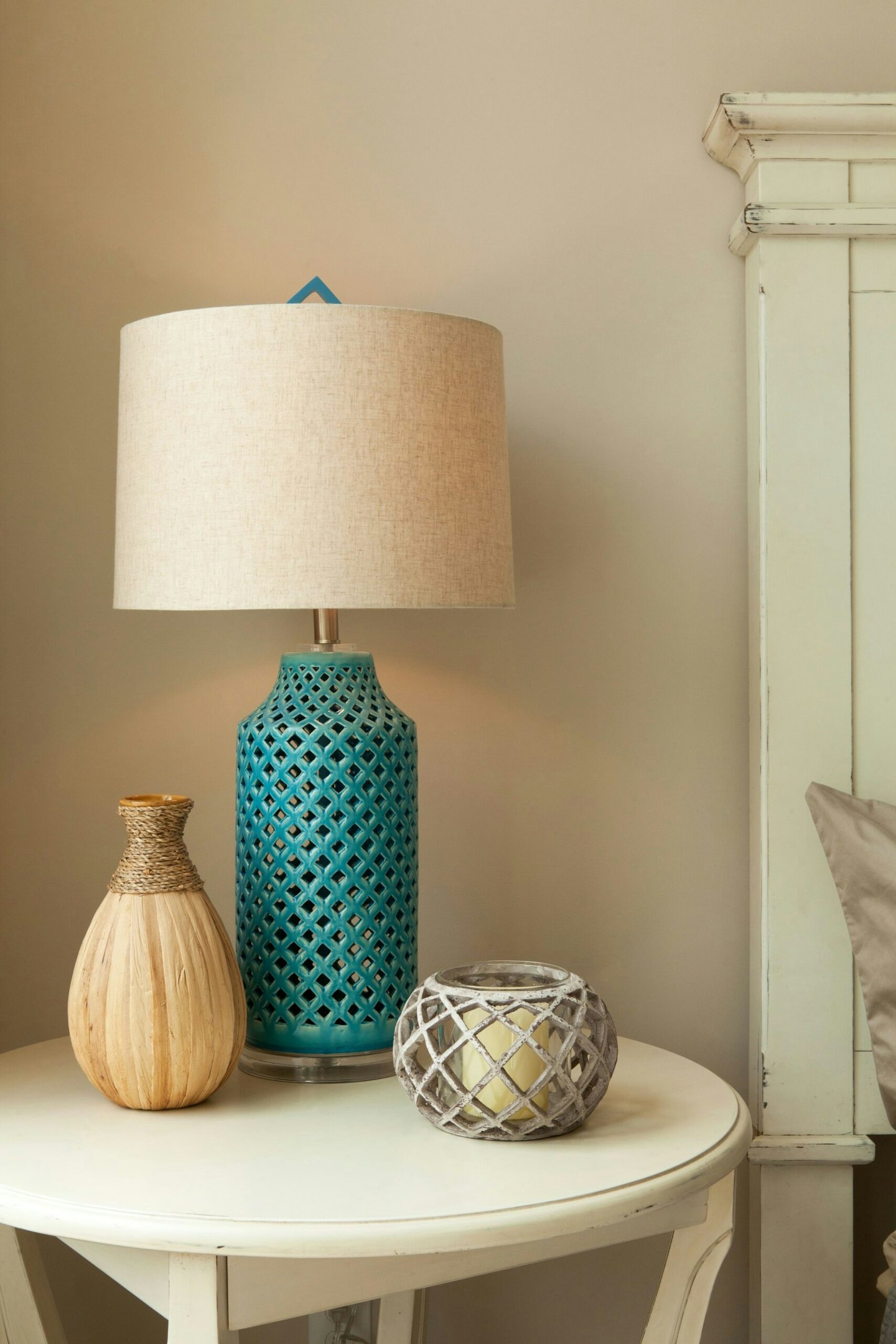
When it comes to lighting your small living room, it's important to save floor space where you can. 'Avoid floor lamps,' says Sharp. 'Opt for side table lamps or wall lights to keep switches and leads from hindering your space. Consider a rechargeable light if you only need it on occasion. You can move this around where needed with no trailing cables... we like Pooky Lighting ‘Walter rechargeable’ which comes in an array of lamp shade fabrics.'
Scale back furniture
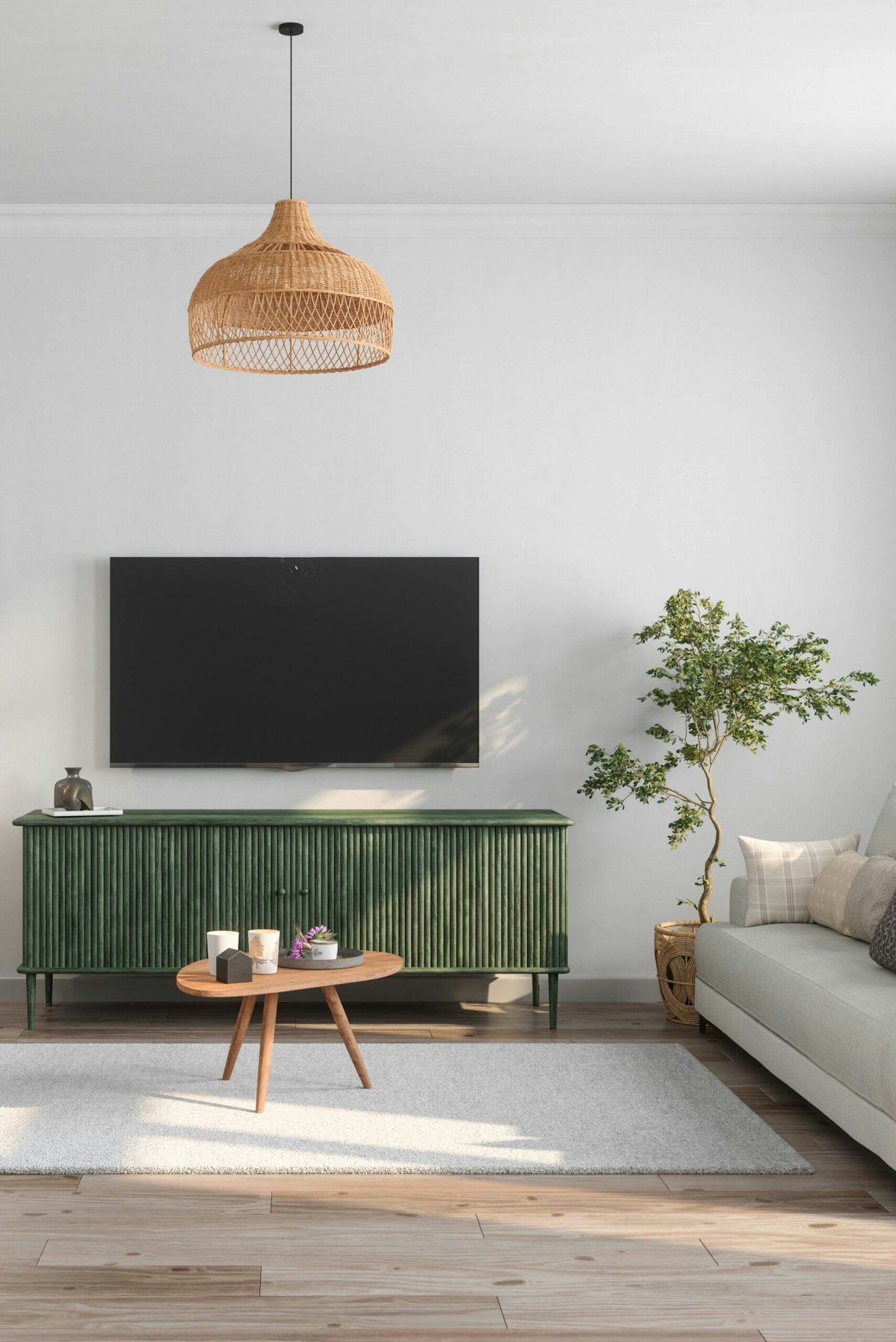
With minimal space, it can be tempting to cram as much furniture as possible so everyone has a seat - but when it comes to furnishing a small living room, we should be doing the opposite. 'Nothing makes a room seem smaller than having pieces of furniture brushing against the walls. Leaving space either side of sofas and cabinets creates a lovely sense of roominess, and installing a television on the wall looks modern and prevents taking up any precious floor space,' says Lloyd.
Add big rugs
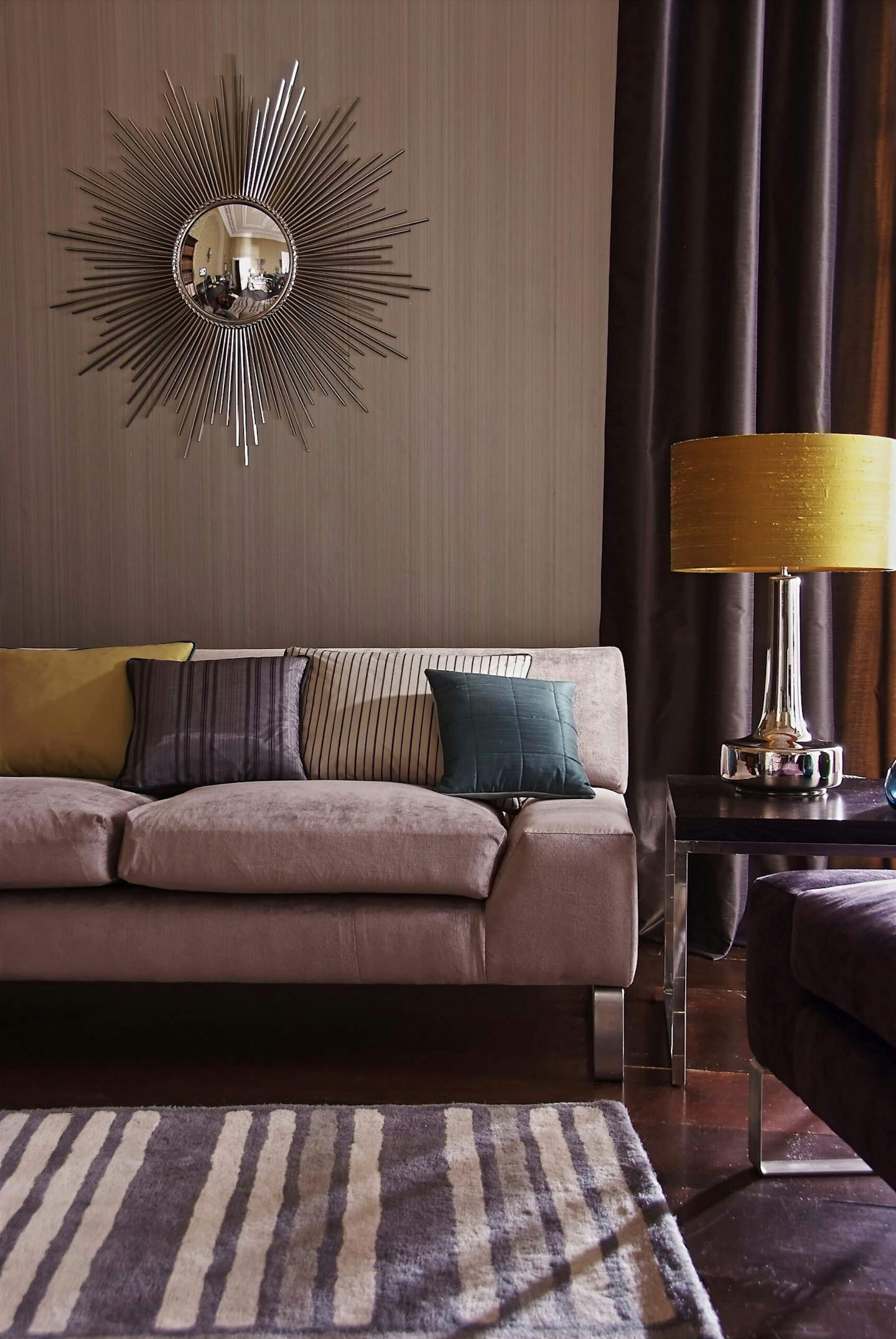
Sharp explains that size matters when it comes to rugs. 'If your living room is on the small size, opt for the biggest rug you can. A small rug in a small room makes your space look even more compact than it is,' she says.
Go maximalist
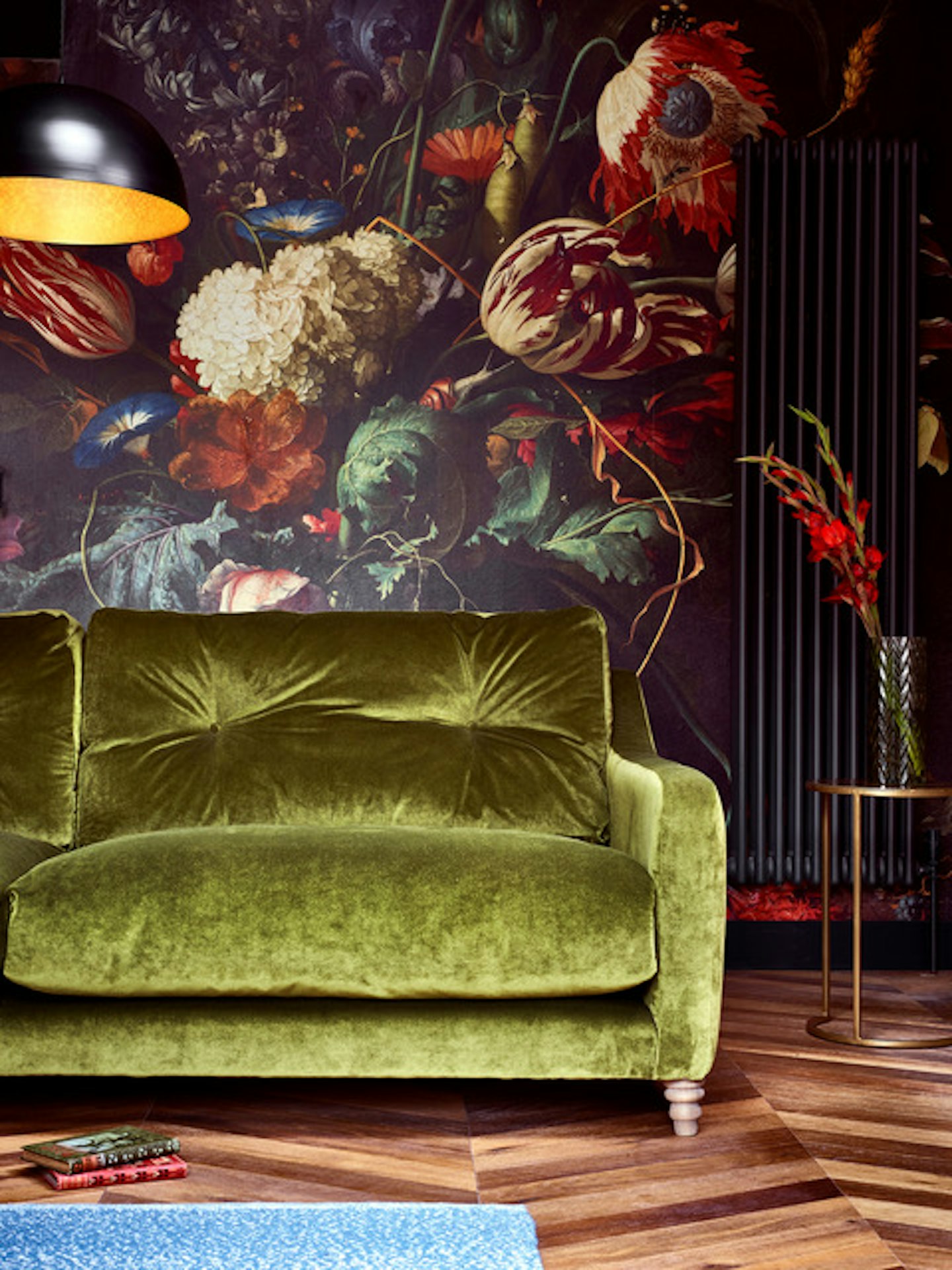
If you're someone with a more is more approach to interiors, don't be disheartened. The key to applying this style to smaller spaces, explains Collins, is to use it sparingly.
'We're going to be seeing a lot of the farmhouse chic trend this year, which is all about layering patterns for that cottagey feel. Just because you've got a small living room, it doesn't mean you can't bring that in.' she says. 'You could get a rug with an interesting floral pattern, a throw or cushions. If you want to go a bit out there, you could wallpaper half of the wall. We're seeing more people wallpapering their ceilings and continuing it halfway down to the dado rail, then painting the other half.'
Interior designer Kate Campbell agrees, adding that we shouldn't fear patterns. 'Old-fashioned wallpaper (like your granny used to have!) is making a comeback,' she says. 'Nostalgic patterns lend themselves to a feeling of security, which we are all craving right now.'
Ditch the curtains
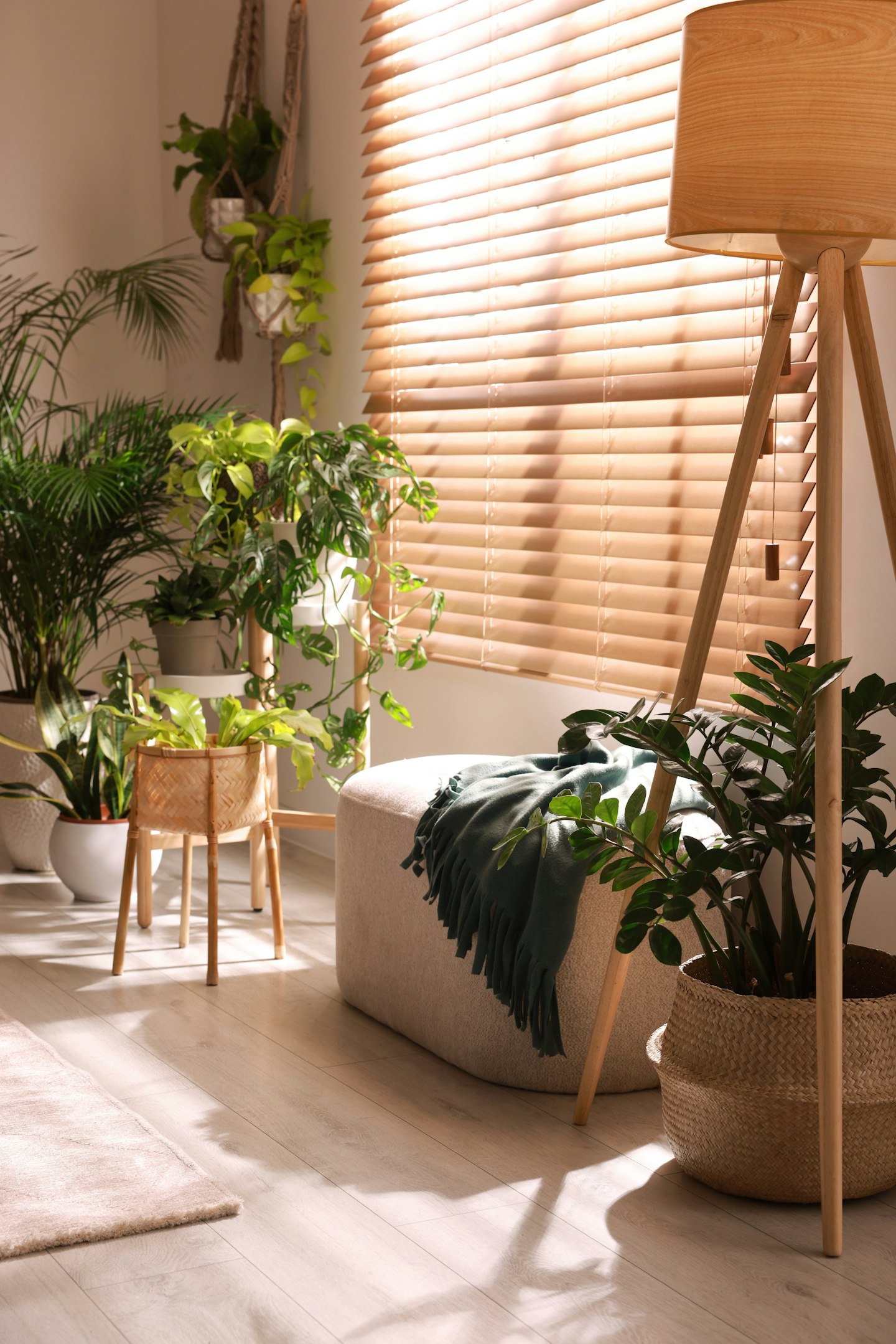
One thing to avoid when it comes to small living rooms is short curtains and horizontal stripes, as these can decrease the wall height. Hanging curtains from near the ceiling to the floor can help, but some experts recommend avoiding curtains all together.
'Drapes and curtains block views of the outside and make rooms seem more insular - even if they only cover part of the window. Installing blinds or shutters guarantees privacy without seeming too imposing, and if curtains are a must then choose a pole that extends far beyond the edges of the window so the view isn’t blocked,' says Sarah Lloyd, Interiors and Paint Expert at Valspar Paint.
Use corner sofas
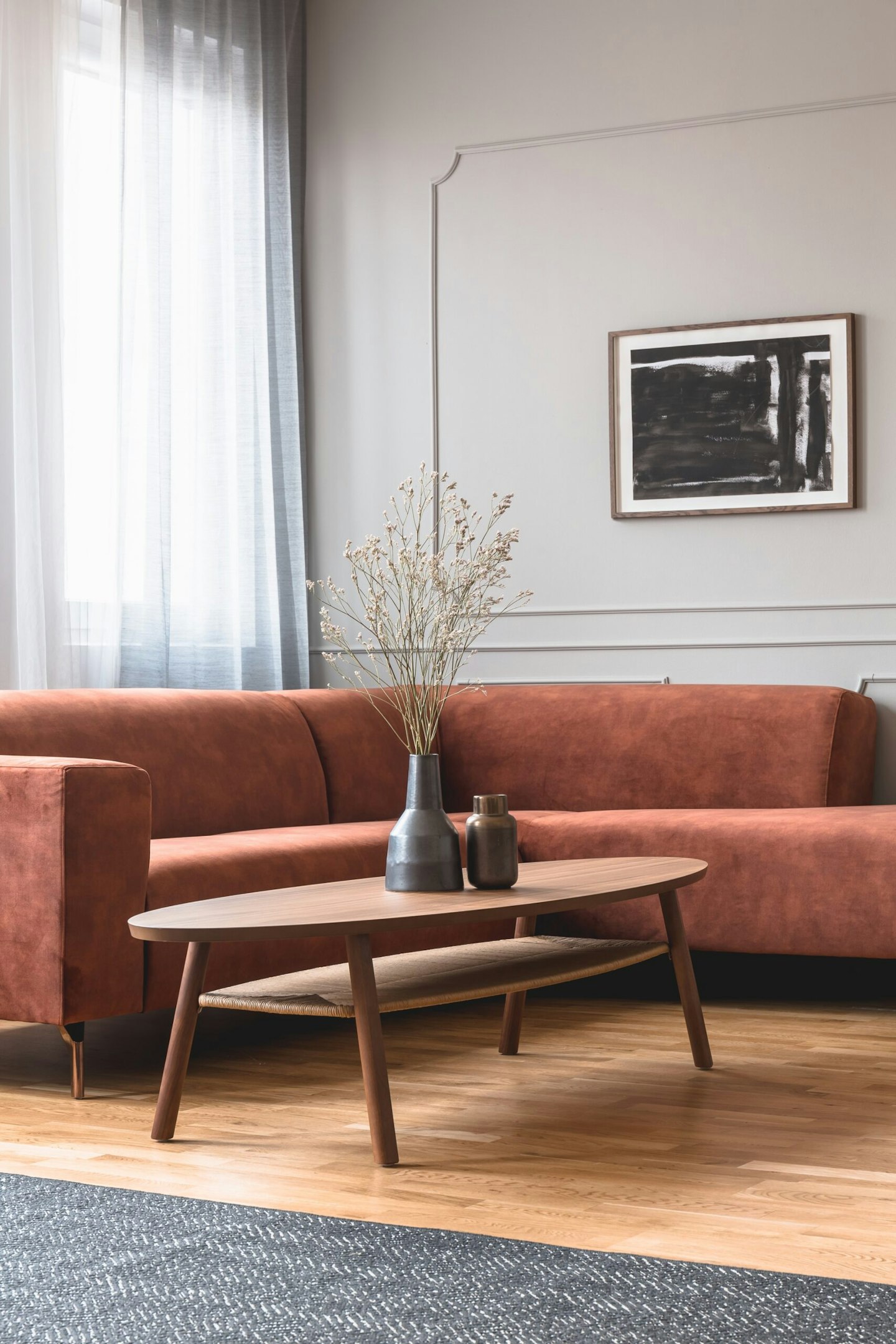
'With clever positioning, corner sofas can be ideal for small living rooms as they allow for more seating when space is limited. 'It can help to choose a lighter colour fabric. Light colour palette toned rooms fool the eye into thinking they are more spacious than they are,' says Sharp.
Choose soft furniture
When it comes to living rooms, comfort is key - and when you're short on space, there's an even better reason to choose softer styles of furniture.
'When it comes to the design, opting for fixtures with soft rounded edges will contribute to a sense of comfort that’s integral to a living room. Mirror these soft edges in the furniture to create continuity and flow in the space, adding to an overall feeling of calm,' says Mara Rypacek Miller, Managing Director and Founder at Industville.
Stick to one colour
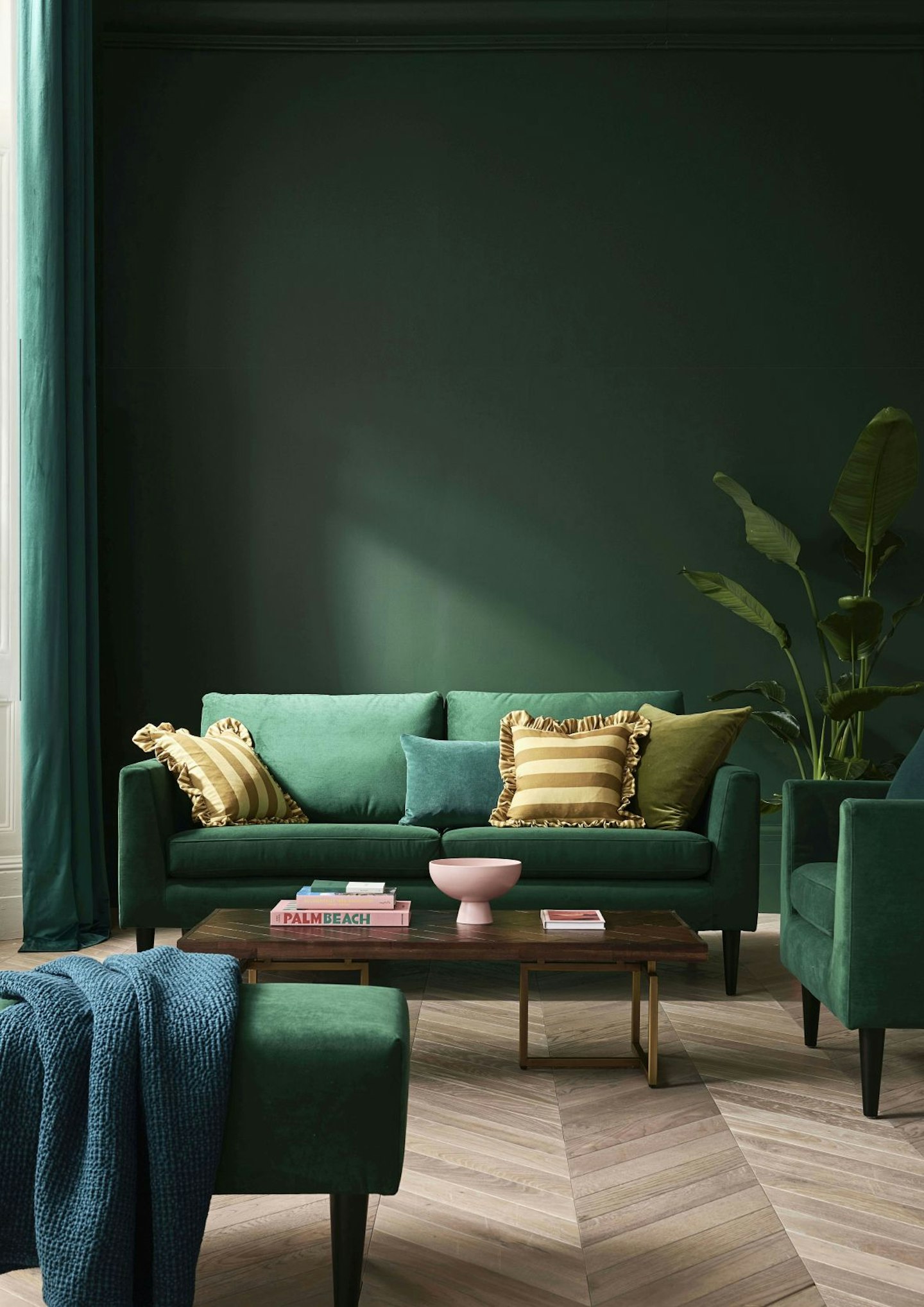
Sometimes less is more when it comes to choosing a colour for your small living room. Whether you go bold and bright or clean and neutral, sticking to one hue can help your space appear bigger than it is.
'In a small room, the key is to keep to one colour palette. Too many patterns or contrasting colours can make the room look cluttered and smaller than it is. You can still be bold with colour, just use one hue to create harmony,' says Sharp.
Use wall lights
It's called trick of the light for a reason. Choosing the right lamps can make all the difference when it comes to giving the illusion of space, while ensuring your small living room feels cosy and snug.
'Integrating wall lights into smaller rooms as opposed to bright central light poses an opportunity to dim light in the evening creating a cosy atmosphere,' say Miller.
Add Stripes
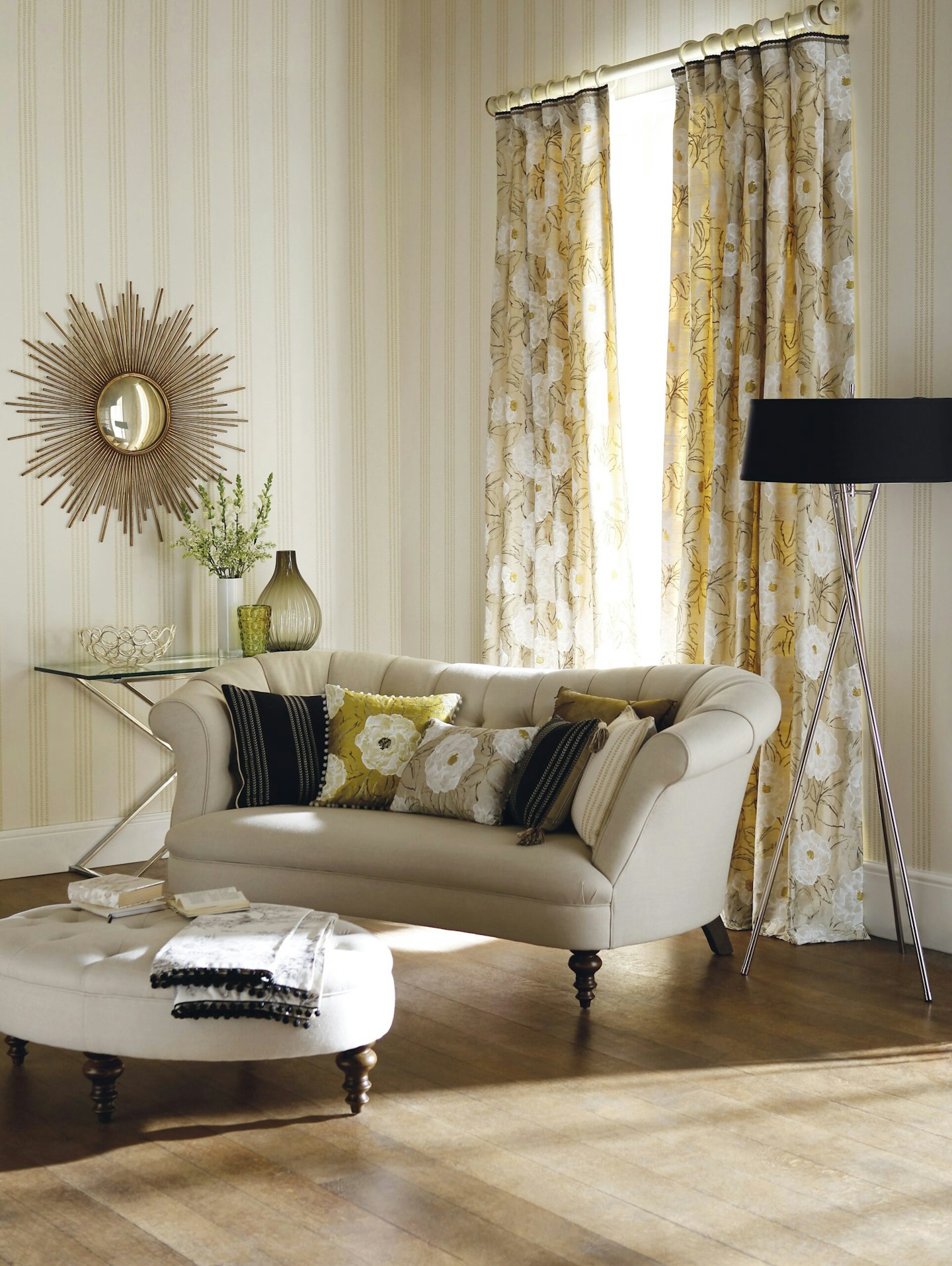
Stripes are a favourite among interior designers for a reason. Alongside adding colour and texture to a room, they can work wonders on transforming a small space. 'Painting stripes on a feature wall is a really interesting way to change the perception of a space, and allows for some fun individuality in the choice of colour and style of stripe,' says Lloyd. 'Pairing your colours effectively is important here; select two gentle shades such as Valspar’s Frosted Blueberry and White Hot that are perfectly cohesive. Vertical stripes in soft colours like these make ceilings look higher, and horizontal stripes make rooms appear wider, so they’re great for small living room spaces!'
Play with textures
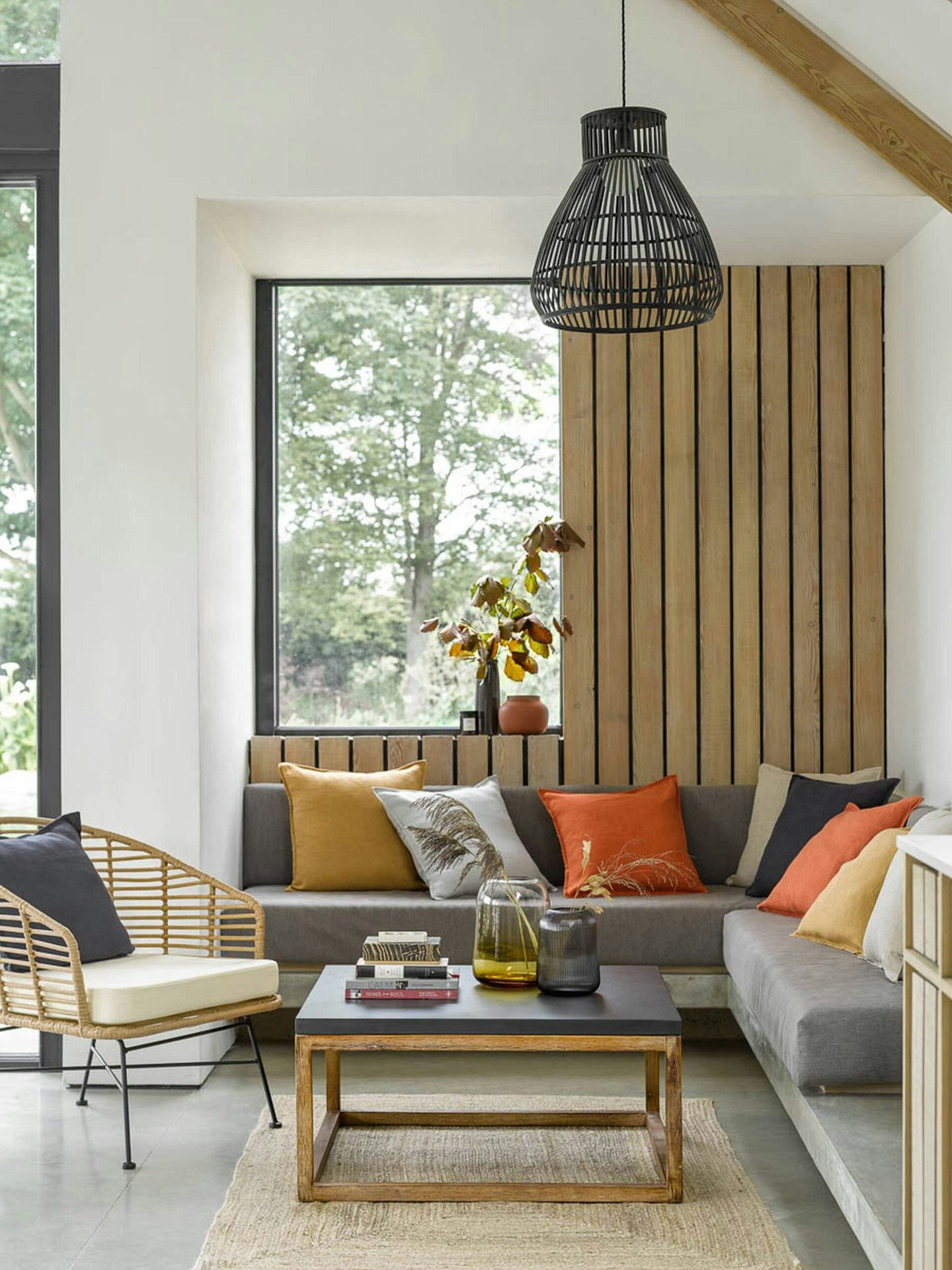
Any interior designer will tell you the importance of texture when it comes to furnishing your sitting room. For 2024, it's all about raw textures that incorporate natural elements: think marble, concrete and washed plaster walls. When it comes to fabrics, think bold in the form of boucle, velvet and faux fur and layer them for extra impact.
Add statement artwork
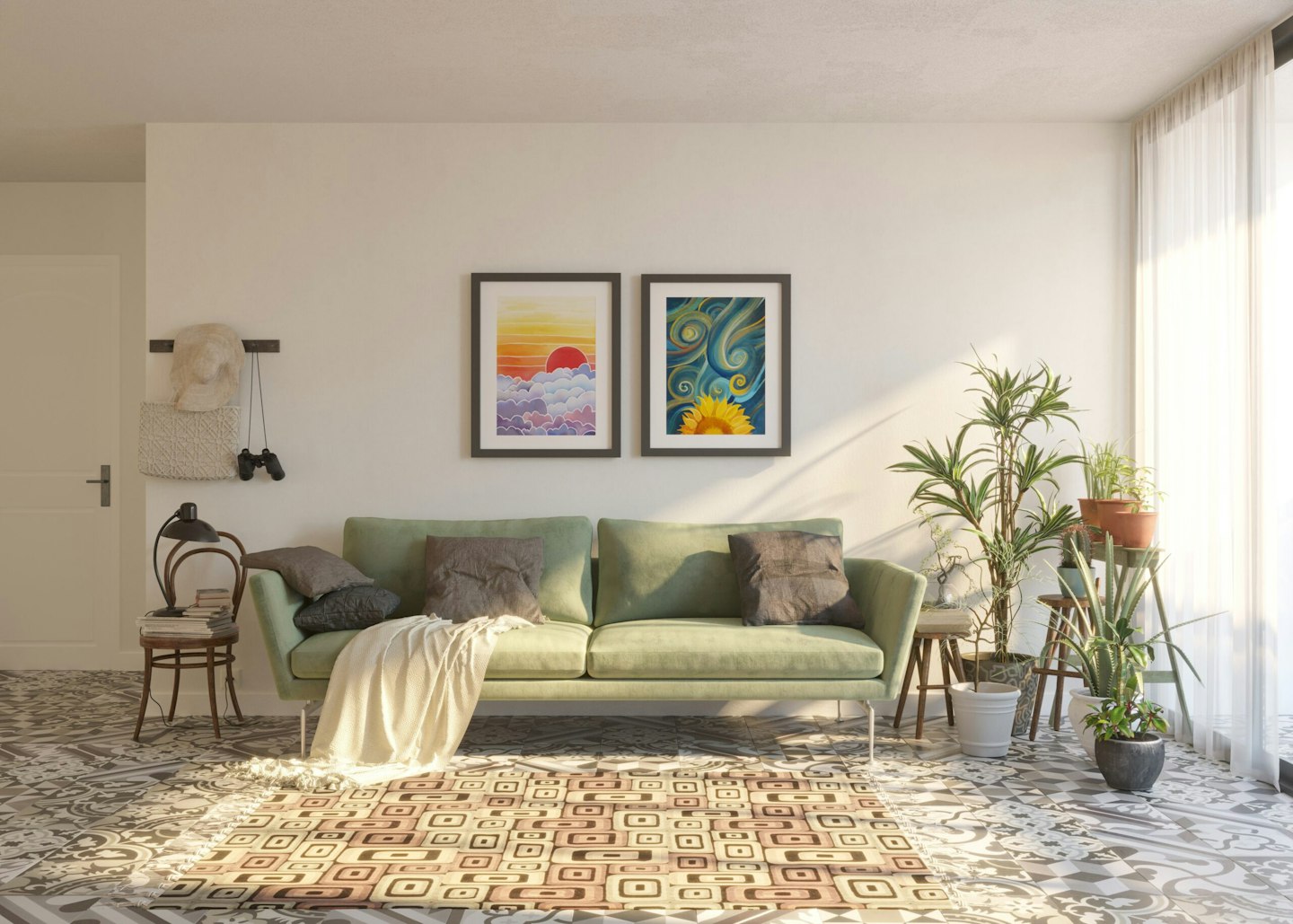
Wall art is a brilliant way to use colour and design to trick the eye into perceiving more space than there actually is. For small living rooms, look for pieces with bright hues that make the room pop or which have plenty of white space.
'This really works! Place your artwork higher up the wall. Don’t be shy to do this. By going a little higher with artwork placement you can draw the eye upward to make the space more expansive,' says Sharp.
Avoid dark corners
Lighting is key when it comes to small living rooms - use it well, and you can easily make the space appear bigger than it really is. 'There is a risk that dark corners will make a small living room feel more enclosed. Even in a smaller area, it is possible to take a layered lighting approach by using pockets of light to create a brighter, more open and welcoming atmosphere,' says Miller.
Choose a slender sofa
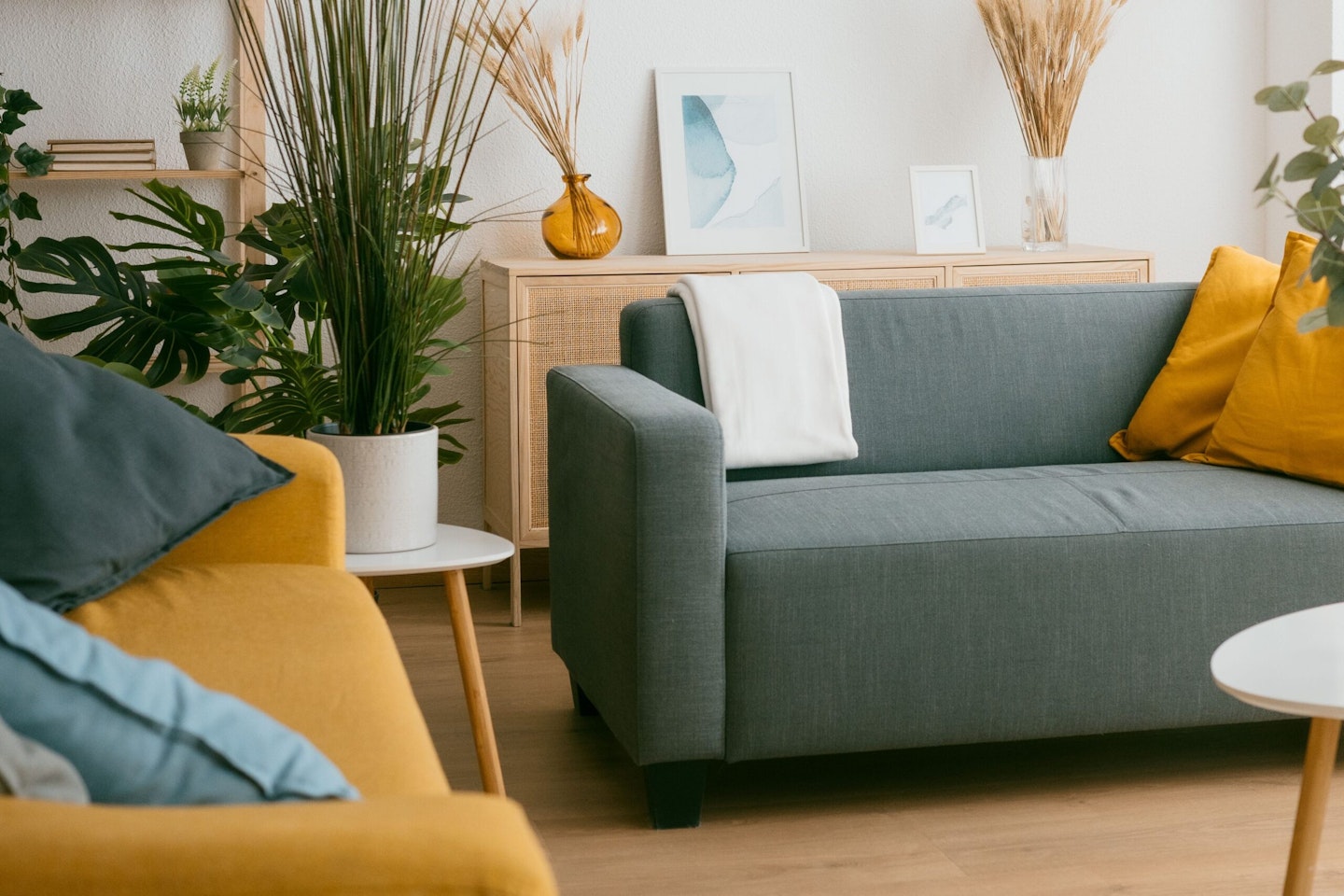
Choice is limited when it comes to what sofa you put in your small living room, but that doesn't mean you have to sacrifice style. 'You may also wish to choose sofa or chair models with slender, narrow arms, such as our Brunel, or those with a low Howard style arm, and both of these tend to give a light feel to your upholstered furniture,' says Sharp. 'A sofa with a sprung back, such as our Kentwell or one with a sprung back and a fixed seat, like the Holmfirth gives an unfussy feel, which helps to maintain a more open and visually calming space.'
Add plants
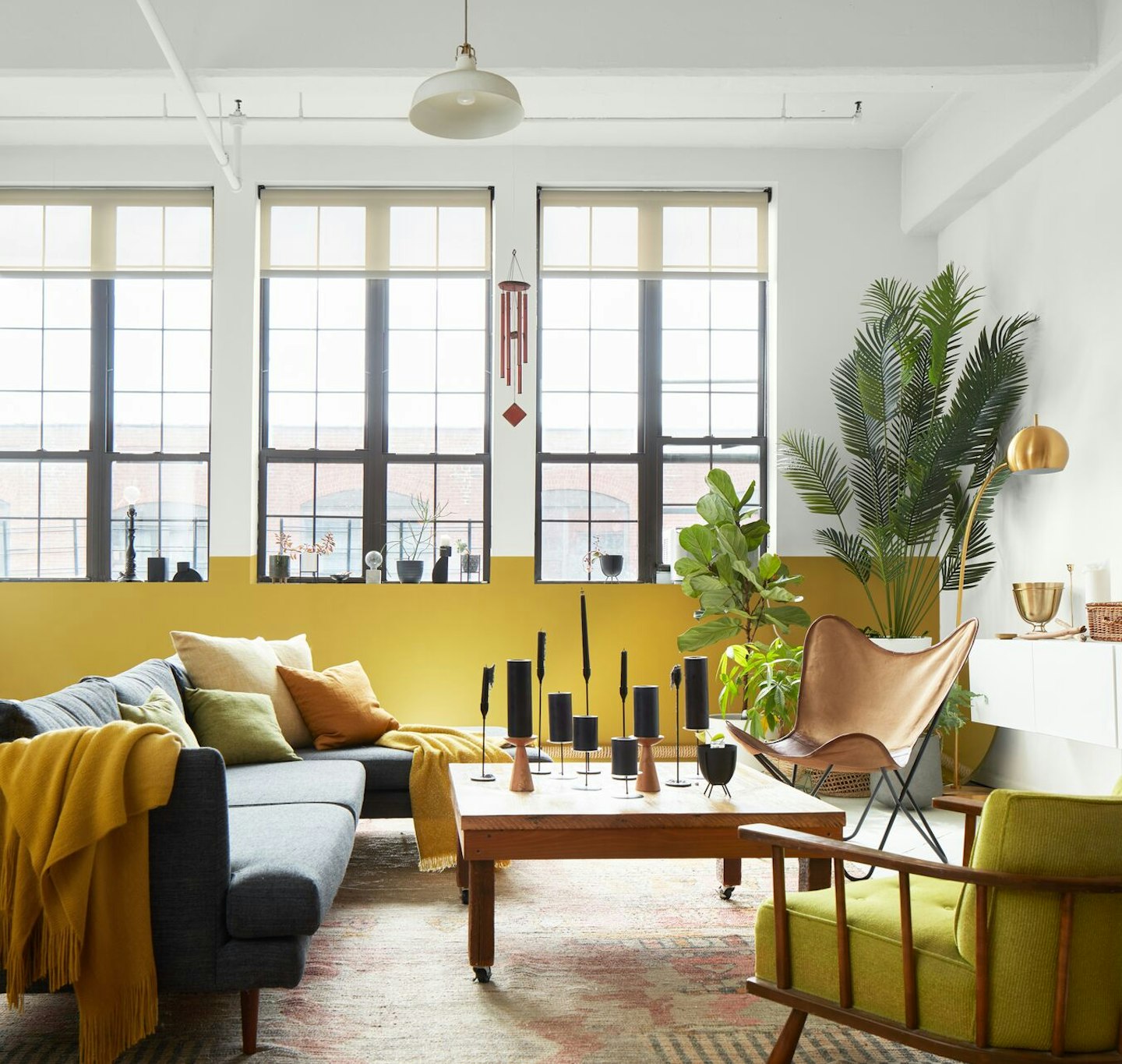
We know that height is important when it comes to interiors, and plants are a fantastic way to get it, while also adding elements of calm and tranquility to any room. Tall plants focus the eye upwards while slender trunks and branches give the illusion of space. Some of Patch Plants' top recommendations for living rooms include the Kentia Palm, a Snake Plant or a Parlour Palm.
Consider the finish
They say it's all in the detail, and when it comes to small living rooms this saying certainly rings true.
'Glass lighting, particularly ribbed textures, will make for an elegant focal point. The transparency of the materials will cast the light in an atmospheric way, creating shadows that add to the overall ambience. Tinted glass such as amber, grey or opal will add a hint of drama adding to the more intimate setting,' says Sharp.
Layer it up
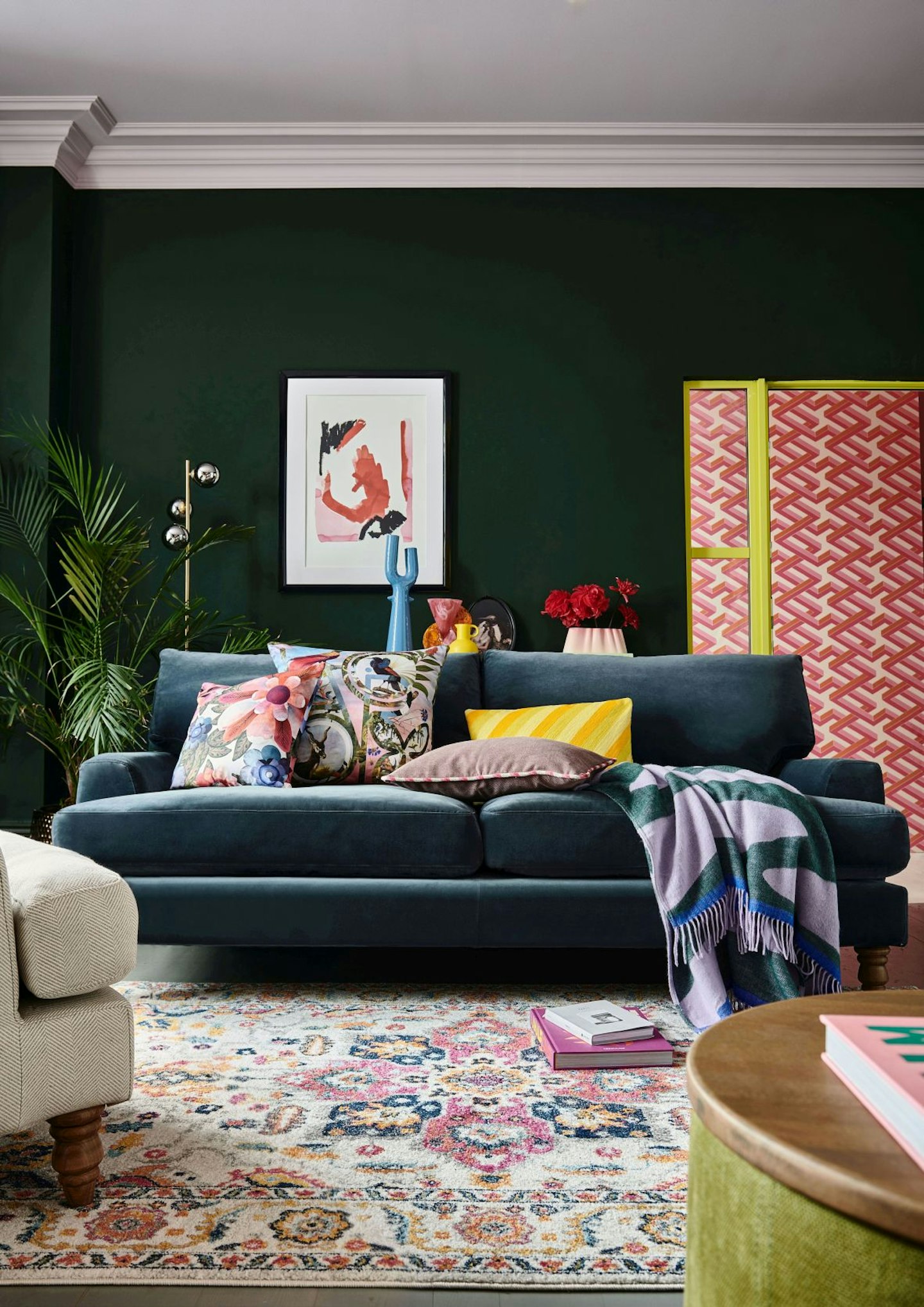
One of the plus sides of having a small living room is that they are naturally cosy, which makes them perfect for hunkering down during the winter months. To take this even further, add lots of layers for that snug, cottage core aesthetic, which is set to be a big trend for 2024.
'One of the easiest ways to add depth and personality to your interior is by learning the art of layering. You’d be surprised at the transformative effect things like a rug, a throw over the sofa and a few strategically placed cushions can have in creating a cosy but visually rich living space. It’s almost like magic,' says Collins.
Only paint half your walls
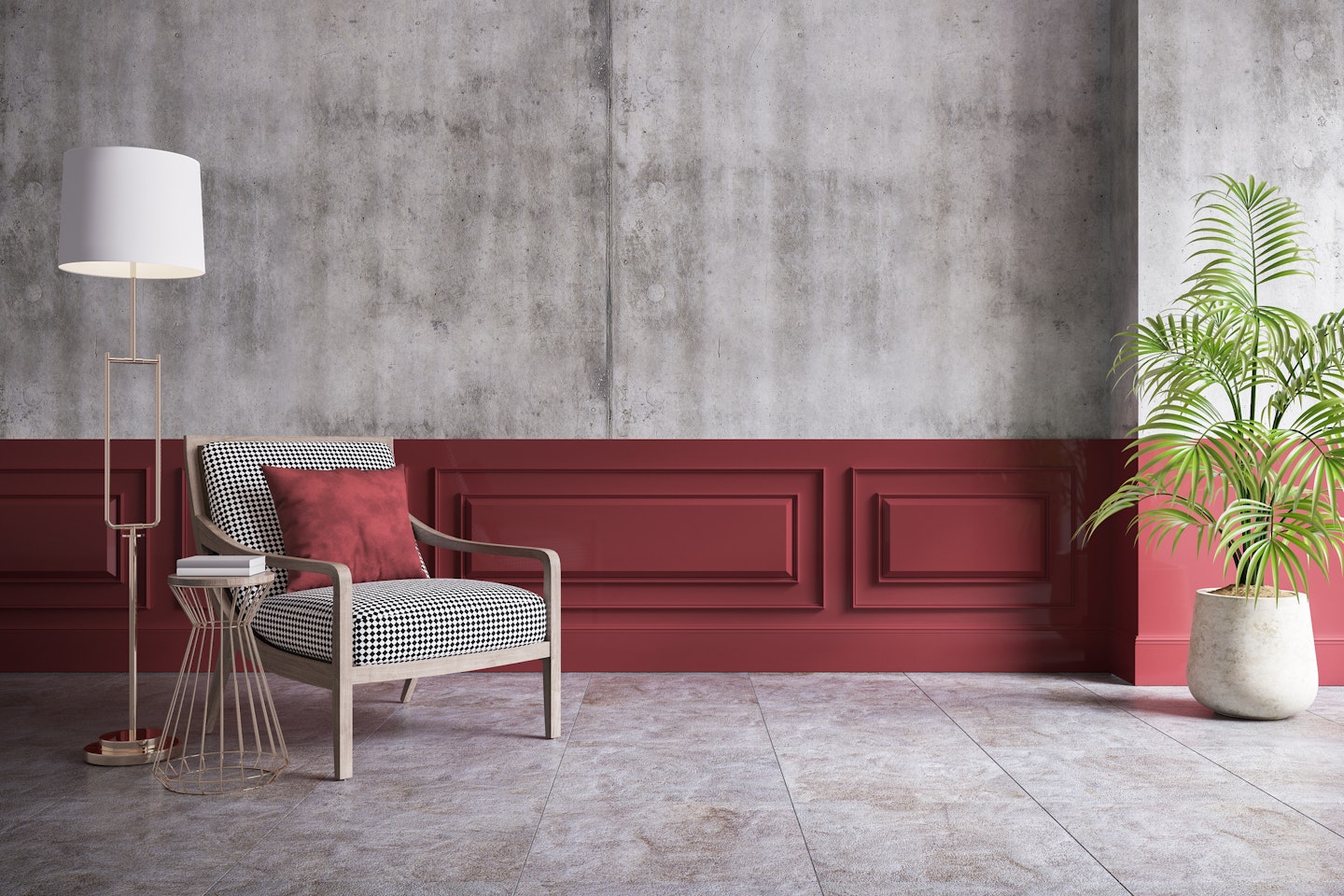
Helen Shaw, Director of Marketing (International) at Benjamin Moore, says that painting the lower half of the walls is a great 'trend led' option for small living rooms. 'This not only add interest but will also trick the eye into making the space feel bigger – the top half of the walls in white seamlessly blend into the ceiling, making it appear further away,' she says. 'For the lower half, opt for a light pastel to create a relaxing feel that keeps the space open, or go for something bold such as yellow will instantly add character.'
Use pools of light
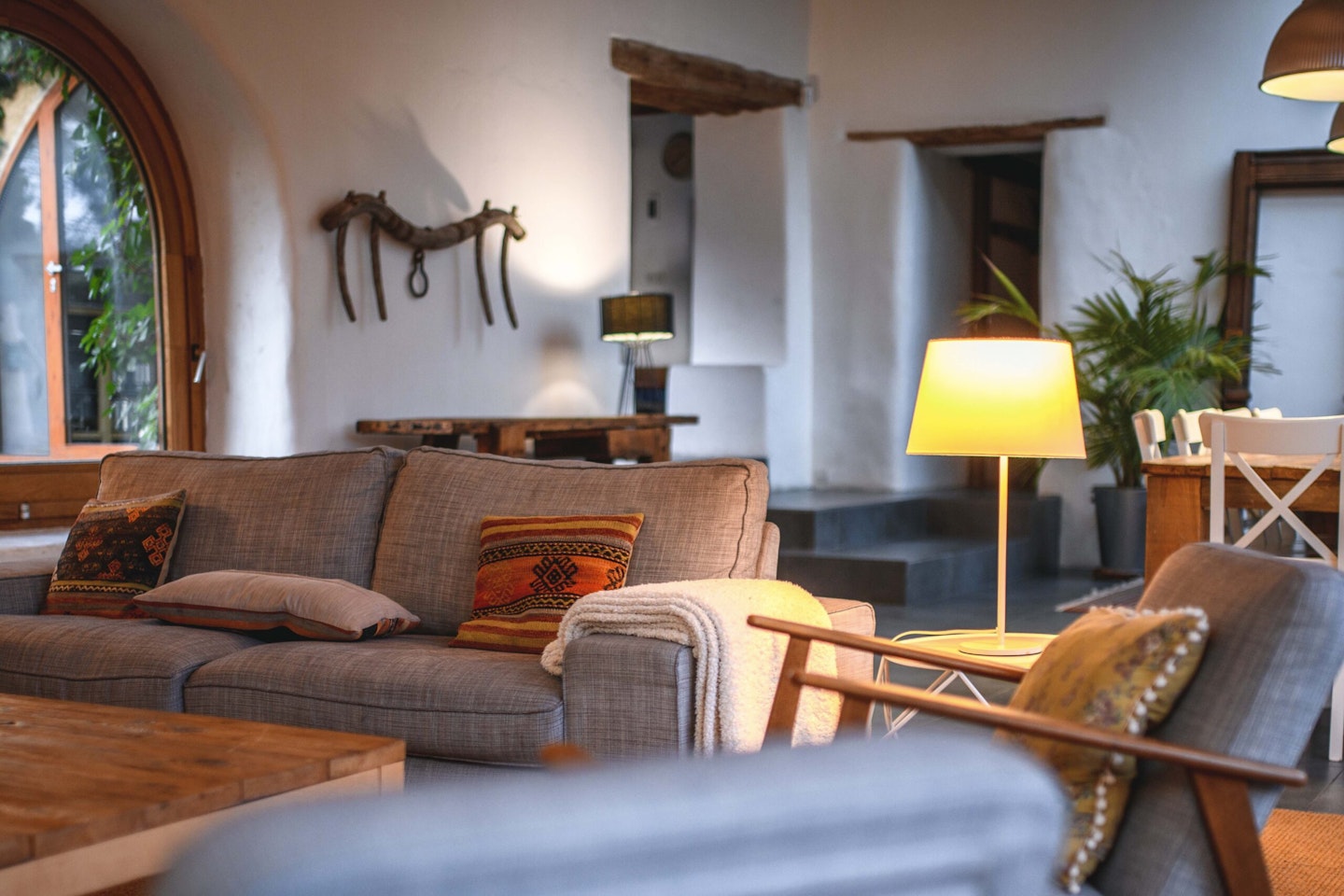
Simon Ribchester, Head of Design at home renovation platform Beams, predicts that Joycore is going to be a key interiors trend for 2024. It's all about choosing interior elements and designs that 'spark personal joy' and improve our mood and wellbeing. One of his key tips is lighting - and every small room will look larger when it's well lit, whether naturally or artificially.
'To achieve an atmosphere with mood-boosting lighting, try creating pools of light, rather than just blasting a whole room. To do this, you need multiple lights, each casting a glow over a small area. Consider playing with lights at different heights, as this will create a layered, dynamic effect and create a boutique hotel feel,' he says.
Let in the natural light
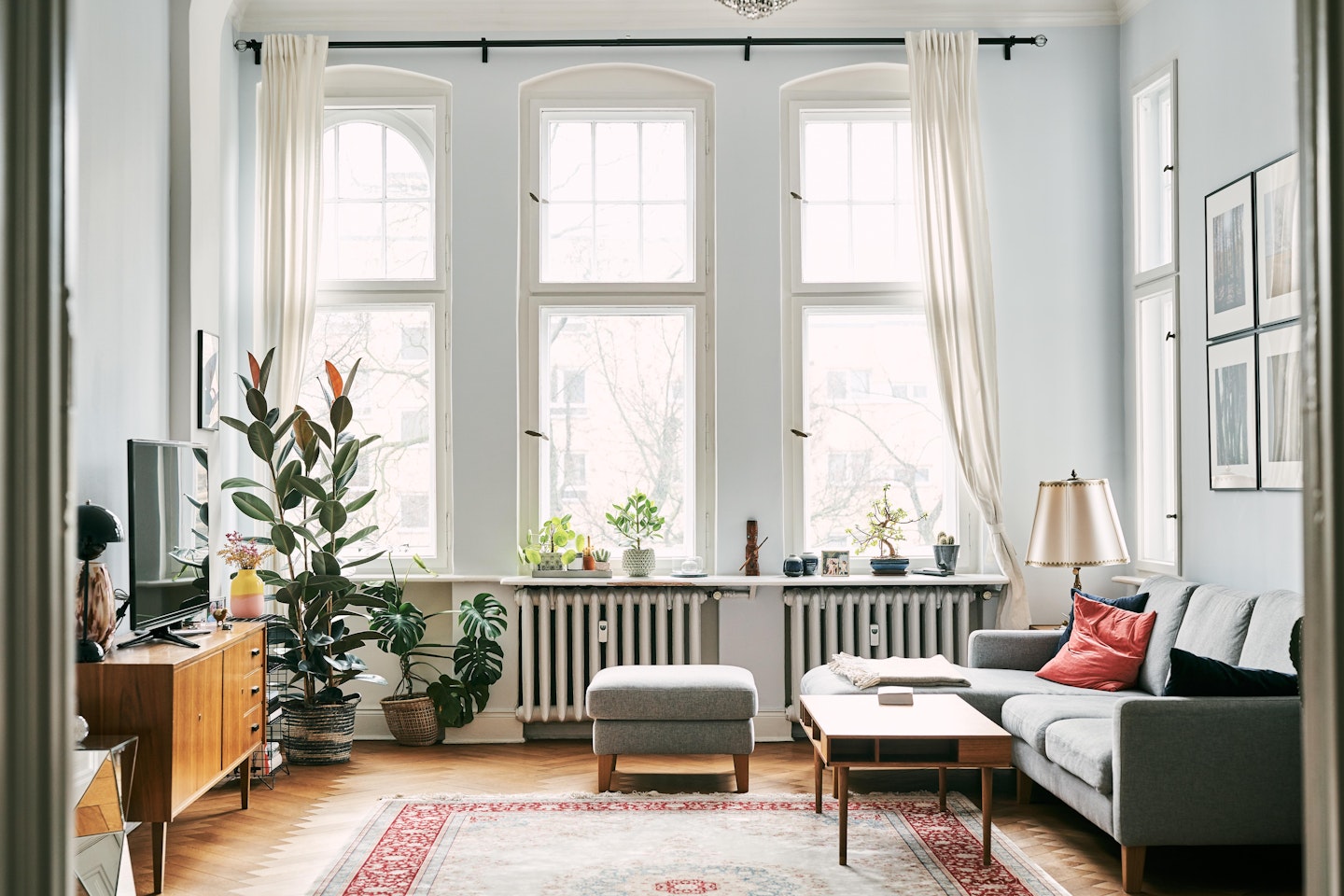
If you're able to, taking advantage of natural light can help a small living room feel more spacious. 'It not only reduces energy consumption but also connects you to the outdoor environment. In fact, this is often a key factor for those looking to renovate whether that be adding more windows or a skylight. If it is possible in your home, skylights are significantly more efficient at letting in natural light than windows,' says Ribchester.
Experiment with peach
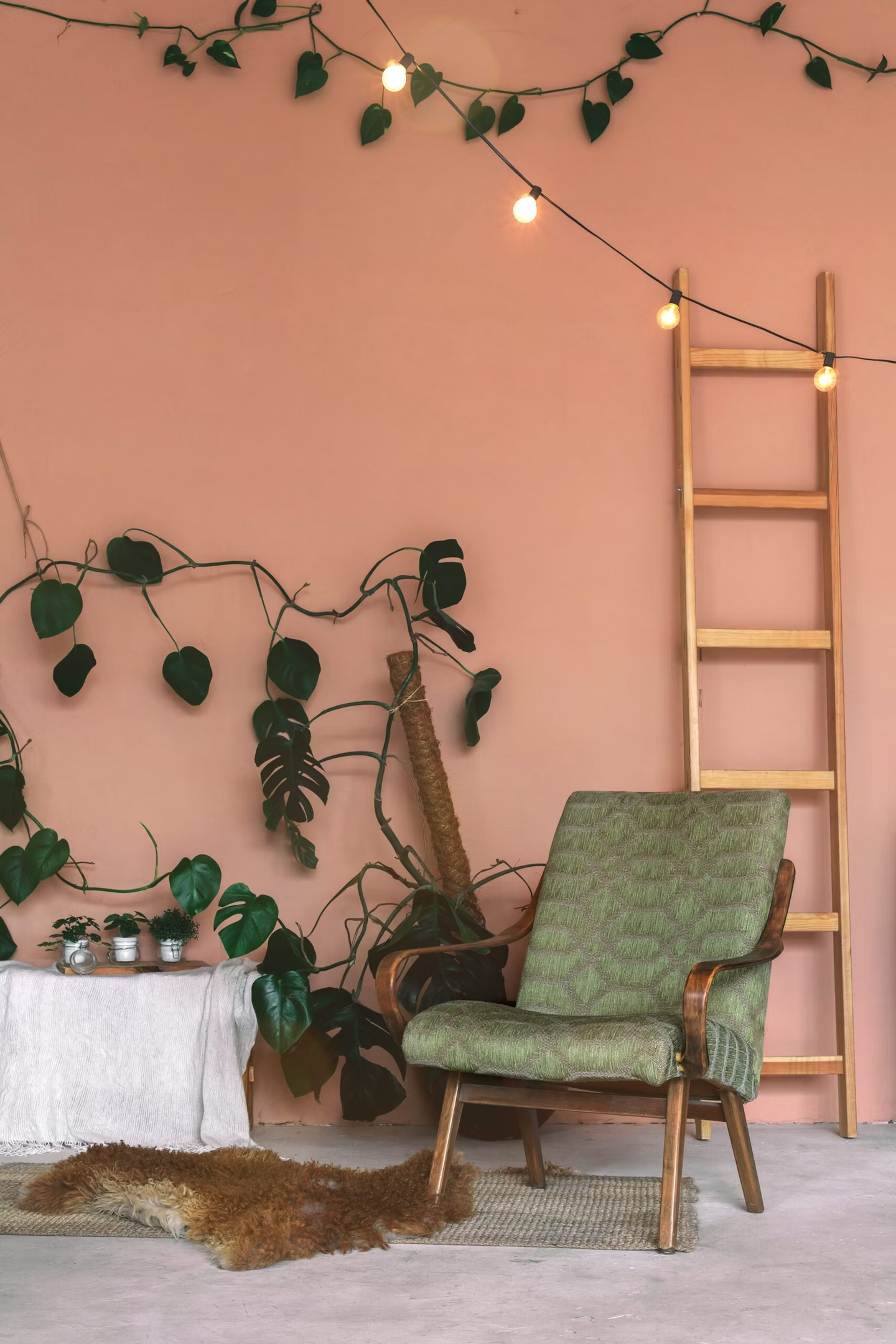
This year's highly anticipated Pantone colour of the year is Peach Fuzz, a light, delicate shade that sits between pink and orange - and it's set to be a huge interiors trend for 2024. As Pantone explains, Peach Fuzz conveys the desire for closeness and the company of others, inspiring a sense of belonging. It is an opportunity to enjoy calm, offering spaces of tranquility and healing.
Small living rooms are great spaces to start experimenting with this cosy hue, whether through wall colours or furniture. Paler shades close to a neutral will open the space up, while darker tones will add depth and richness to the room.
Add curves
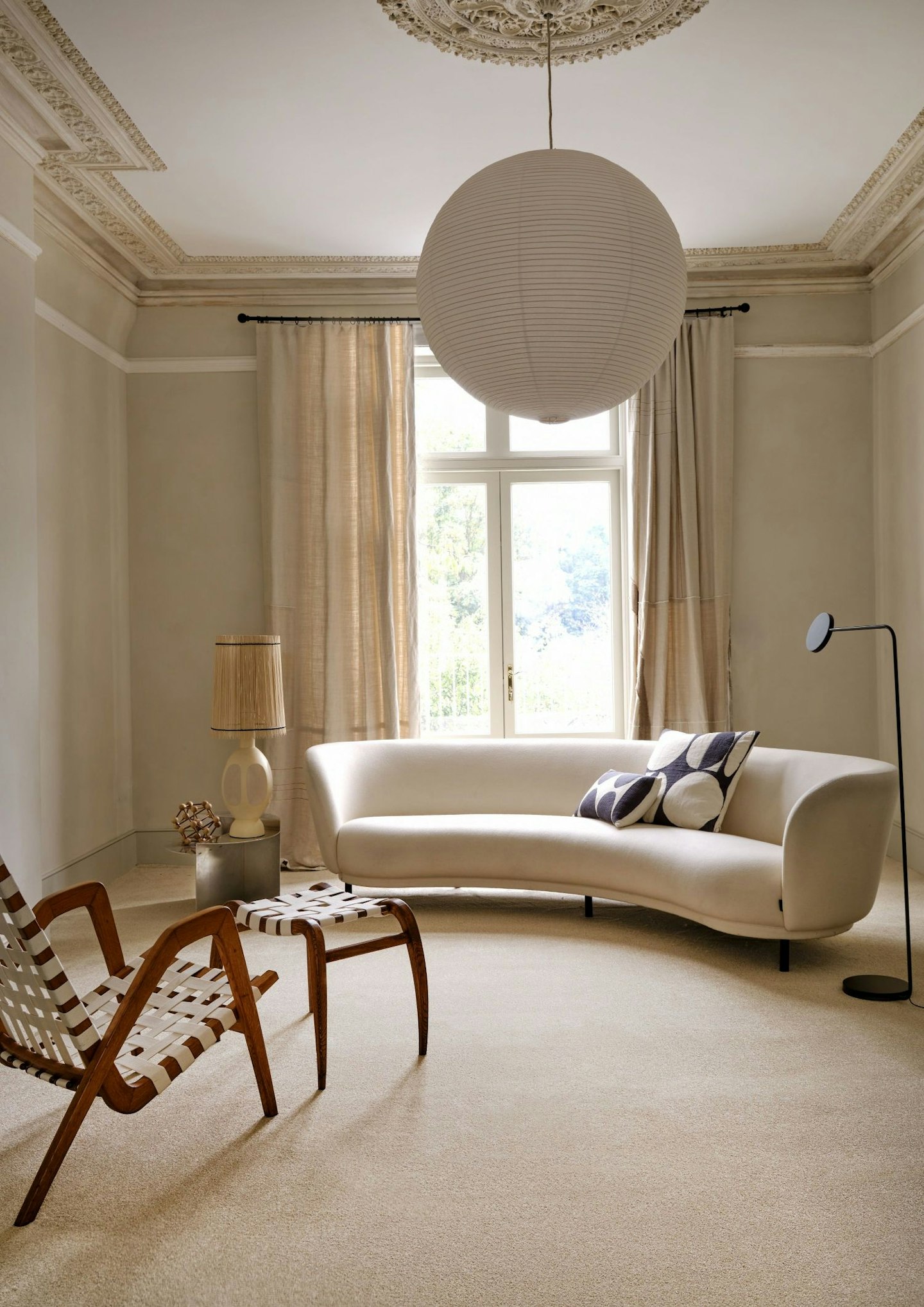
Curved sofas, a mainstay of 70s interiors, are having a resurgence, and for good reason: they are chic, space saving and create a feeling of space and warmth, making them perfect for small living rooms. Plus, you can fit a few more people on them than a conventional sofa, which is a clear win for cramped areas.
'Everyone knows curves are beautiful, and curved furniture is going to be everywhere in 2024. We’ll be seeing the trend in everything from upholstery to casegoods and accessories, which can help bring a natural harmony and flow to your interior. It can also create captivating contrasts against your decor’s sharper lines,' says Collins.
